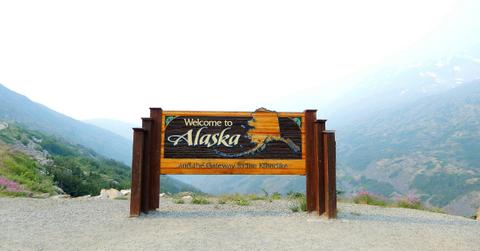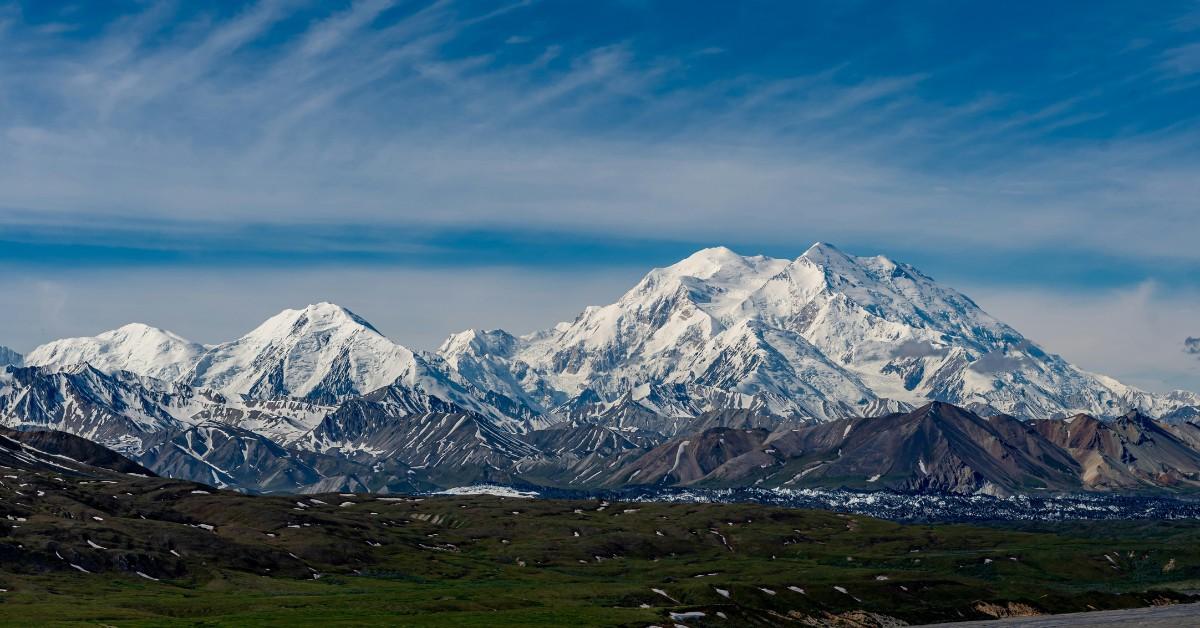Alaska Expecting Record Heat in Summer 2025, Officially Fastest Warming State in the U.S.
Heat risks have become a reality for the Last Frontier state.
Published May 6 2025, 10:27 a.m. ET

When you think of Alaska, you likely think of the snowcapped peaks of Denali, the grizzly bears catching fresh salmon in the stream, and even the remote parts of the state that you need to travel to by plane in order to visit.
However, the one thing that rarely springs to mind when people think about the state is the heat. That's because Alaska's northern location tends to keep the temperatures lower most of the year.
As such, many of the state's buildings and homes are designed to keep warm air inside. In fact, not many homes even have any source of air conditioning, which can prove dangerous when temperatures rise. That's exactly what they've been doing over the years, which is why Alaskan officials have announced that they will be issuing their first-ever heat advisory during summer 2025.
You can read more about the advisory below.

Alaska to begin issuing heat advisory warnings.
Beginning June 1, 2025, the National Weather Service offices based in Juneau and Fairbanks will begin issuing heat advisories when temperatures in the area are expected to reach 75 degrees in outlying areas, 80 in Juneau, and 85 degrees in the state's interior.
Those numbers may sound low by certain standards — in fact, in Florida or Arizona, those temperatures would be considered comfortable in the summer months — but Alaska simply isn't built for that kind of heat.
According to USA Today, that's because Alaska experiences between 18 to 24 hours of sunlight in the summer, meaning that people's homes and businesses are baking in the sun for longer than in the lower 48. And, when you consider that all of this takes place without any air conditioning, things can quickly get dire.
“It’s not only that temperatures are going up, but in many areas we’re getting increasing wildfire smoke in the summer,” climate specialist Rick Thoman told the publication. “So the impact of the temperatures is changing.”
To illustrate that change, he described the potentially life-or-death situation some Alaskans could find themselves in as the mercury starts to climb.
"If you have to have your windows closed for three days, you don't have air conditioning and your house is built to hold heat, pretty soon your indoor air temperature is higher than it is outside," he continued.
What is the hottest temperature ever recorded in Alaska?
So, how hot can Alaskans expect it to get? Hot! According to the Weather Channel, Alaska's hottest day was June 1915, when it hit 100 degrees in Fort Yukon.
But that's not the only temperature of note for the state. It also holds another record, which was shattered in August 2024 when Deadhorse hit a sweltering 89 degrees, making it the hottest temperature ever recorded that far upstate.
Unfortunately, Alaska can likely expect to see more of these record-shattering temperatures in the coming years, as Climate Central has declared it the fastest-warming state in the U.S.
The state owes that title to climate change, which seems to be impacting the region much quicker than other states, thanks to its location. This heat advisory decision is both apt and timely.